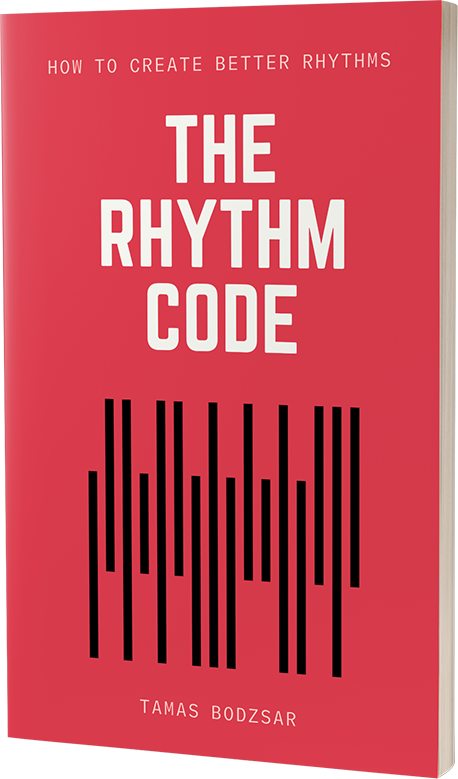
The songwriting process consists of many parts and many steps. If you are a bass player, you might add extra emphasis on the bass groove. If you are a drummer, you might work extra hours on the drumbeat. But what is the most important part of the song? Is it the lyrics? Is it the drumbeat that makes people dance? Let me share with you what I think to be the most important part of the song, and why it is important to understand it.
What is the most important part of a song
The most important part of a song is the melody. There is a reason why today’s pop songs have very simple arrangements. These songs only consist of the vocal melody, a drumbeat, some simple bass line, and a very light synth sound to provide chords. And that’s all. The chord progressions are also very simple, sometimes it doesn’t change throughout the whole song, it’s just a loop or 4 chords all the way through.
Why melody is the most important
Most people don’t speak English
Many people think that lyrics are very important. And it’s true to a certain extent. Lyrics are not unimportant. But music is even more important. Because guess what, billions of people who don’t speak English, love songs with English lyrics. They don’t understand a word, yet they recognize and love the songs. English is a language that is understood by 1.5 billion people on the planet. But music is a language that is understood by everyone on the planet. And a few years ago, Despacito, which has Spanish lyrics, became one of the most streamed songs on the planet. And even fewer people understand Spanish. Most people don’t even know the meaning of the title.
We remember melodies better than words
It’s scientifically proven that people remember melodies better than lyrics. Melodies persist more in long-term memory than lyrics. On top of that, as it turns out, melodies HELP remember lyrics. Ask your friends to TELL (not sing) the lyrics of a song. They will probably have a hard time remembering. But they can remember the lyrics perfectly if they can sing them with the melody. Also, people with dementia and Alzheimer’s can remember singing passages, but may not remember their loved ones or even their own names.
I just asked my wife about her top favorite song. She started to think, and she had a song in mind, but she didn’t remember the title. She started to sing the song to remember the title. (This already proves the theory.) I asked her to tell me the lyrics in words without singing. She had a hard time and made many mistakes. And she said the melody was going on in her head while she was trying to remember the words. And then I asked her to sing the song, she could sing it almost perfectly remembering the lyrics.
Most people are not music experts
Since most people are not music experts, they don’t even distinguish the chord progression or the bass line in the music. In fact, they don’t even hear these instruments consciously. Ask any non-musician person if he remembers the bass line or the chord progression from his favorite song. I’m a musician and even I don’t remember bass lines, drum beats, or chord progressions UNLESS I have already played the song myself.
It’s what the listener will remember
So if you ask any non-musician friend to sing the bass line or any other instrument, or maybe a chord progression, they probably won’t remember those. But they will definitely remember the melody. The melody is what most people learn, remember, and recognize. It’s always the melody that sticks into our ears in a way that we can’t forget. That is what we call earworms.
Even if it’s a melodic hook that is played by a musical instrument, remember that it’s still a melody! And keep in mind that not all songs contain instrumental melodic hooks. So most of the time, people remember the vocal melody of the song.
It’s the most unique part of the music
You cannot copyright a chord progression, you cannot copyright a drumbeat or a bass line. But you can copyright a melody. This is because the melody is the most unique part of the music. There are literally thousands of songs that are using the same chord progressions, same drum beats. The only thing that differentiates them from each other is the melody. In fact, you can actually steal any chord progression and write a unique melody on it. You can also steal any drumbeat or bass line and write a new melody on it. And the truth is, the melody is so unique, that great songs sound good even if they only perform it with a vocalist and a guitar.
It represents both tonality and rhythm
Melody has two dimensions, tonality, and rhythm. You cannot write a melody without tonality and you cannot write it without rhythm. This is why you cannot copyright a chord progression or a rhythm alone. Even though there are many ways to harmonize a vocal melody, if you have the melody, you already know the key of the song. And if you have the melody, you already have a tempo and a rhythm too. So all in all, it’s relatively easy to fill the space when you write a song if you already have the melody.
It can contain the hook
The melody is also very important because most of the time, it contains hooks. The hook is a unique melodic motif that makes our music memorable and unique. In the songwriting course, I show you a formula of how you can create memorable and unique hooks for your songs. And as I mentioned before, even though hooks can be played by any musical instrument, they are still melodies, and listeners will remember and sing them as melodies.
The secret pattern behind successful songs
Get the eBook for $4.99

